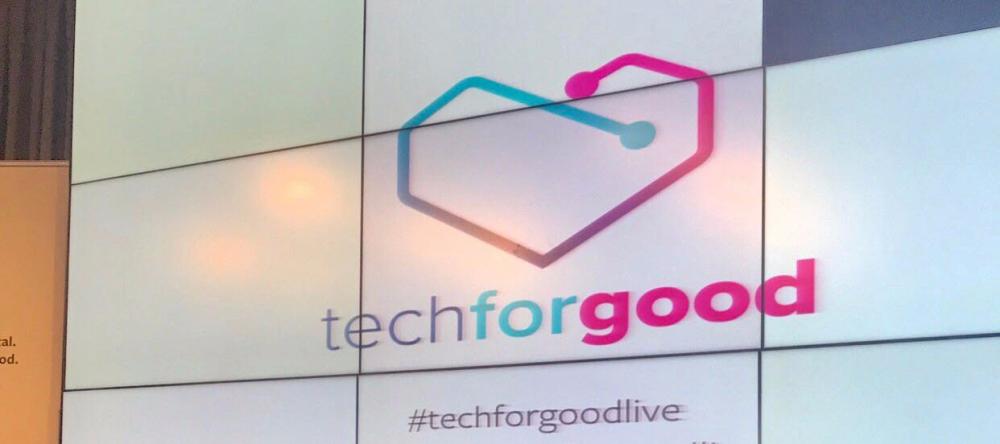Tech For Good: Digital Inclusion

Last night we attended the first Tech For Good event of 2017, hosted at Think Rise Manchester (a venue which we are definitely going to check out again) exploring all things digital inclusion thanks to three talks from experts in the field. Fuelled by pizza and beer (you may sense a running theme here) the evening was an eye opening exploration into digitally excluded demographics and communities.
Kicking off the evening was Lisa Lee, @LisaleeOK, from the Good Things Foundation who educated the audience in the innovative ways in which the charity is working to decrease digital exclusion across the UK (so far they have helped 2 million people). Starting with some shocking statistics, such as, 12.6 million people in the UK have no digital skills and 5.3 million people in the UK will never go online, Lisa explored the various channels in which digital education can be successfully executed. Good Things Foundation have targeted their platforms perfectly through ensuring that they are suited to the correct literary level for their users to ensure maximum effect; a perfect example of how initial research and discovery is the crux of any piece of work. One of the projects which Lisa mentioned, which presented the true gravatas of the Good Things Foundation, was a solution which the NHS have used to empower people to manage their health using online tools, saving the NHS a projected 6 million pounds since launch. Finally, Lisa ended her presentation with some concluding statics; business’ which are online are 35% more successful, 90% of employers require digital skills and digital competency results in 5% - 10% higher salary, proving that growing the nation's ability truly is an important step in both ensuring a higher quality of life and a contributor to a more stable economy.
Next up, Jessie Blaynee, @woodelfy, explored over 65’s and a piece of research which further delved into the digital exclusion of the older generation. From the get go Jessie, humbly, reminded the audience that although the tech itself may be new, the processes and logic behind it are age old; for example, an information architecture has been present in libraries for hundreds of years, not just a thing fabricated by agencies in the past few years. Interestingly, the idea that some behaviours are innate was presented through the fact that over 65’s who had never used digital devices before were presented with tablets and, somehow, knew to scroll - opening the door straight away for the older generation to become more frequent users of touch devices. Throughout her talk, Jessie presented the pros and cons of documenting her research either on paper or digitally and perfectly summed up the thinking behind this by presenting the audience with, ‘if content is king, context is queen’. Another thought provoking idea which was put forward was, ‘at what point in a person’s day can you have the biggest impact?’ although this is quite a simplistic question, it is certainly something which has more power behind it when you consider users who may be immobile or suffering from dementia. Finally, Jessie recounted a story from her research in which an elderly lady, with dementia, bought an xbox and call of duty so that she could interact with her autistic grandson; although she was unable to turn on the television or change the settings, she was able to the play the game through memory - truly showcasing the idea that age is not a limit.
The final presentation of the evening came from Rita Cervetto, @rcervetto, of the Common Good company who presented an extremely inspiring and emotive talk which explored ‘Designing for empowerment’. From inception the talk was full of surprises, for example, the idea that refugees think as entrepreneurs and are extremely skilled digitally, along with being talented linguists - something which is not presented in the portrayal of refugees in the media. Rita introduced the audience to the concept of ‘microwork’, which is a combination of small tasks culminating in a larger project; Rita then told the audience of the Common Good solution ‘U able’ an initiative which introduces refugees to businesses for translation services, using the microwork concept. Rita explored how, when talking to some refugees in a trial run, they were mostly interested and excited by the prospect of speaking to people, something which we certainly take for granted.
The evening was a fantastic introduction to digital inclusion and an eye opener into ways in which Wool can help with this widespread problem. Buzzed and inspired thanks to Tech For Good, the team will certainly continue to explore this topic further…